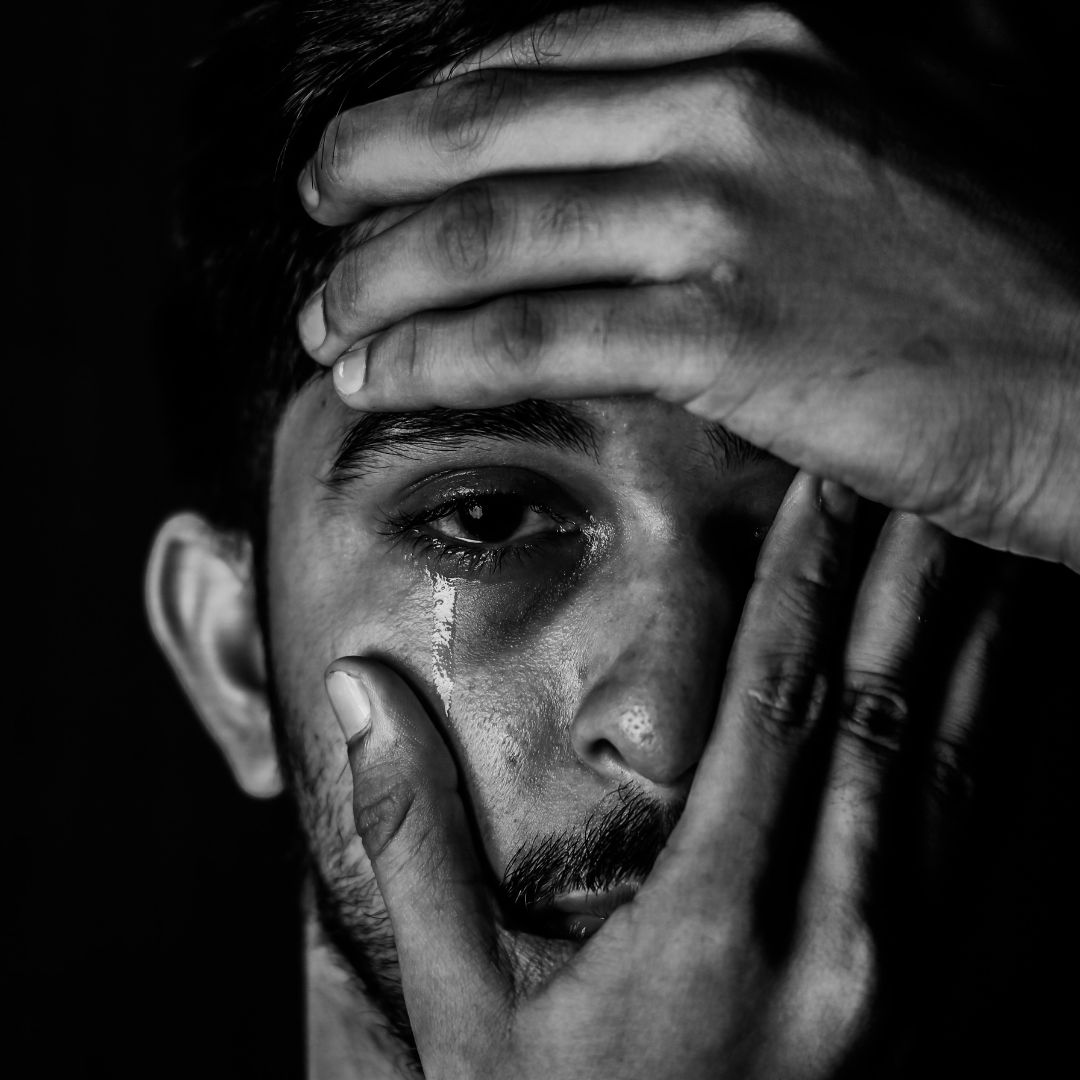Men Cry Too: Why Indian Men Are Struggling Silently With Mental Health

Introduction
In India, the stereotype of the stoic, unemotional man is still deeply ingrained. Phrases like “mard ko dard nahi hota” ("a man has no pain") perpetuate a damaging culture of emotional suppression. Yet beneath this facade, Indian men are wrestling with depression, anxiety, burnout, and suicidal ideation, all often in silence.
A Hidden Crisis: What do the numbers say?
- According to India’s National Crime Records Bureau, 72.5% of suicide victims are men. Urban helpline data in Times of India shows a 126% increase in calls by men from 2020 to 2024, with themes of anxiety, relationships, and depression.
- Despite the numbers, about 40% of Indian men avoid talking about their mental health, citing societal expectations to "handle it alone".
- Studies show self-stigma is a major barrier: a 2023 analysis found that Indian men often internalize shame around help-seeking, a pattern strongly linked to reduced mental health support.
The Pressures Behind the Silence
- Toxic Traditions of Masculinity
Cultural norms prescribe men to be providers, problem solvers, and unemotional pillars, leaving no room for vulnerability. This unspoken pressure fosters anxiety, depression, and in some extreme cases, suicide.
- Work-Related Stress & Role Conflict
Men often mask emotional distress by overworking. Yet, urbanization, job instability, and extended working hours compound mental strain, without adequate coping or emotional outlets.
- Structural Stigma and Help-Seeking
Though India has a Mental Healthcare Act (2017), societal stigma remains a formidable barrier. Men frequently rationalize emotional pain as weakness, miss vital early interventions, and worsening outcomes.
Breaking the Stigma: Signs That Men Need Help
Warning Sign: What to Look For
- Irritability & Anger: More unclaimed outbursts than usual
- Emotional Numbness: Reduced range of feelings; a detachment from joy
- Substance Use: Turning to alcohol or drugs to “cope”
- Isolation: Avoiding friends, hobbies, or family gatherings
- Somatic Complaints: Frequent headaches, fatigue, and muscle pain
Recognizing these signs is the first step toward bridging the silence.
How to Help: Practical Solutions
- Normalize Emotional Expression
Conversations must begin at home and at work. Phrases like “You don’t have to tough this out alone” validate emotional struggles and open pathways to support.
- Promote Male-Oriented Mental Health Outreach
Help lines like Vandrevala Foundation and services such as The Alternative Story provide confidential, judgment-free counseling for men.
- Pioneer Group Support
Peer groups organized through NGOs and communities help men share experiences without judgment, triggering healing through collective empathy.
- Encourage Professional Help
Therapy and coaching must be presented not as a last resort but as a tool for enhancement, not weakness. You can avail yourself of individual therapy here.
Emerging Positivity & Hope
- Mental health helpline calls from men surged 126% between 2020 and 2024, signaling a shift in awareness and courage.
- Initiatives like Men’s Mental Health Awareness Month (June) are challenging patriarchy and promoting openness.
- Digital platforms supporting men’s mental health are increasingly rising across India’s metro and non-metro areas.
The Way Forward: Creating Safe Spaces for Indian Men
To support Indian men’s mental well-being, society needs to move beyond judgment and stereotypes. Schools, colleges, workplaces, and homes must become spaces where emotional vulnerability is not equated with weakness. Mental health should be discussed as freely as physical health, particularly among male peer groups, where stigma often thrives.
Organizations can also play a pivotal role. Mental health policies in the workplace must be gender-sensitive, offering access to anonymous counseling, flexible leave, and emotional wellness sessions tailored to men’s needs. HR leaders must normalize conversations about emotional burnout and stress in male-dominated sectors like engineering, finance, and logistics.
Furthermore, media representation matters. When male celebrities, athletes, and influencers talk openly about therapy or depression, it chips away at the cultural wall of shame. Campaigns like #ItsOkayToTalk or “MeToo” in India have already begun challenging old norms, but they must be amplified and made consistent.
Finally, therapy itself must evolve. Therapists should be trained to understand cultural masculinity constructs and create a non-judgmental, relatable atmosphere for Indian men, many of whom are first-time help seekers. You can avail yourself of the best psychologists’ help here.
Final Thoughts
Men do cry—and when societal walls crumble, profound emotional healing becomes possible. Indian men may still struggle silently, but a slow and hopeful unraveling is underway. By amplifying conversations, validating emotions, and championing access to mental health care, we can begin to heal the silent wounds. The message must be clear: “It’s okay not to be okay—and asking for help is brave.”
FAQs
1. Why is mental health stigma stronger among men?
In India, traditional masculinity equates emotional strength with stoicism. Seeking help is often seen as a weakness, increasing self-stigma, and delaying treatment
2. Do Indian men avoid mental health support?
While male suicides account for 72.5% of total deaths, only 25–40% of helpline calls are from men. That’s gradually changing, but progress is slow.
3. How does self-stigma affect help-seeking behavior?
Studies show that men who internalize shame about mental health are significantly less likely to reach out, even when services are available.
4. Are there mental health services for men in India?
Yes—organizations like Vandrevala Foundation, The Alternative Story, and many helplines provide confidential and culturally sensitive support.
5. What can families do to support men’s mental health?
Openly affirming emotions, dismantling macho propaganda at home, and guiding loved ones to seek professional support can break harmful silence.
References
- The Times of India. Retrieved from https://timesofindia.indiatimes.com/city/mumbai/more-urban-indian-men-are-reaching-out-for-mental-health-help-helpline-data-shows/articleshow/121854214.cms
- Hindustan Times Insight. (2024, August). Understanding and supporting men’s mental health. Hindustan Times. Retrieved July 19, 2025, from https://www.hindustantimes.com/ht-insight/public-health/understanding-and-supporting-men-s-mental-health-101724223657403.html
- Jyoshna, C. M. (2023, June). Masculinity, stigma, and help-seeking behaviour among Indian men. Paripex – Indian Journal of Research,12(6). https://doi.org/10.36106/paripex/8704002

Priya Parwani
Priya is dedicated to providing practical solutions with an evidence-based approach to mental health care.
Related Blogs
No related blogs available.
